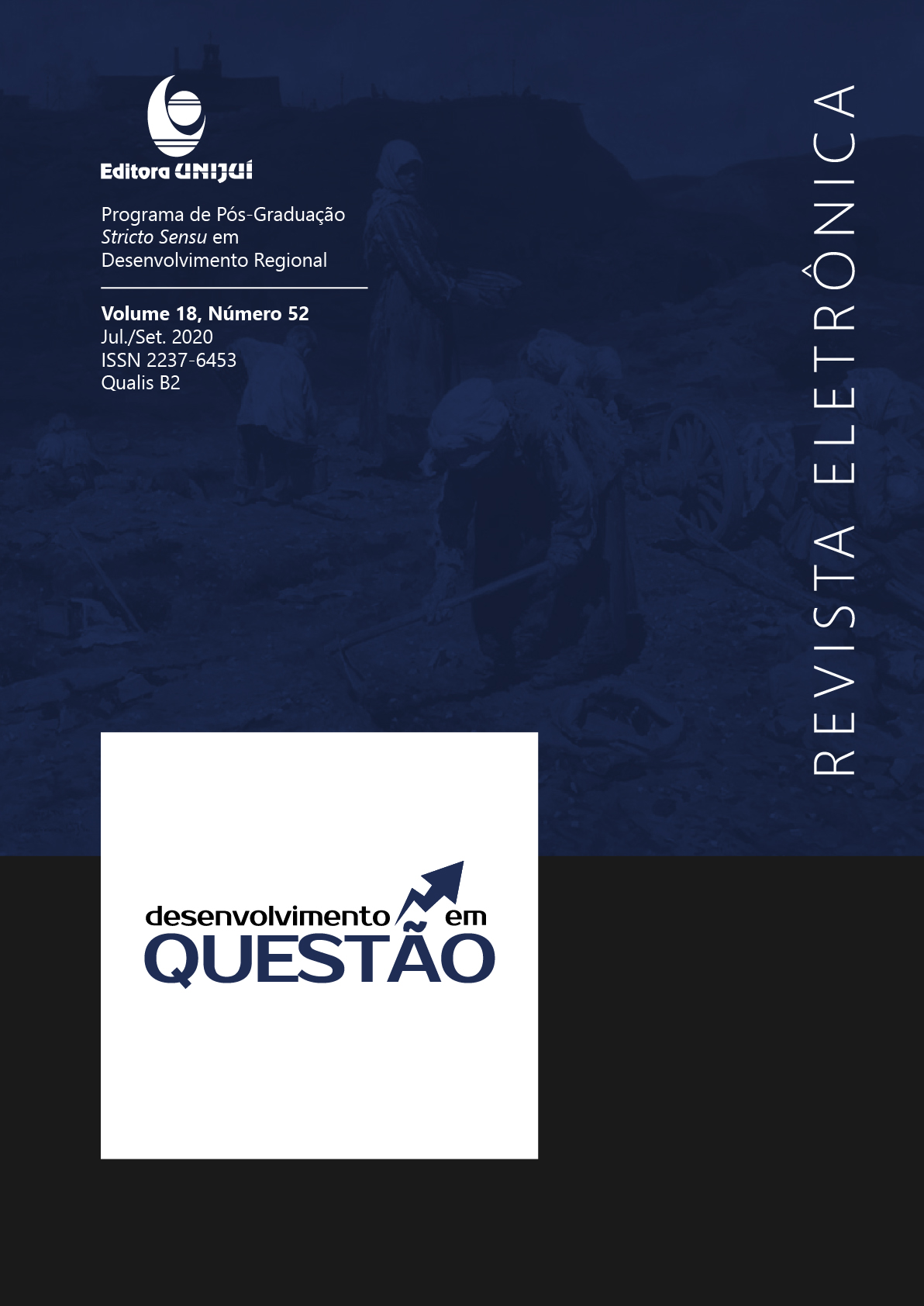COLLABORATION NETWORK OF FAMILY AGRICULTURE IN PORTO VELHO-RO
DOI:
https://doi.org/10.21527/2237-6453.2020.52.335-354Keywords:
Sustainable Development, Family Farming, Public Policy, Actor-Network Theory.Abstract
There is a need to develop an alternative economy where exploitation can be avoided, new prospects for productive occupation and reinforce trajectories of social inclusion. Therefore, the objective of this paper is to analyze the process of relationships, practices and translations of the formation of a family farming network in the city of Porto Velho-RO, from the perspective of the Actor-Network Theory. Its relevance is to provoke reflections on who are the actors of this network, how they influence and are influenced and what are the results of this interaction. This article is characterized by being an analytical research, qualitative and directed by a case study. It was used the Actor-Network Theory (ANT), which brings important contributions, because it is an approach that proposes a modification in relation to what is meant by "social". It was concluded that the network was built around three pillars: peasant ideology, market and public sector. The peasant ideology includes the farmers 'organization, the Rural Workers' Union of Brazil, the National Confederation of Agricultural Workers (CONTAG) and the Union of Family Farming and Solidarity Economy Cooperatives (UNICAFES). The public sector is represented by the municipal departments SEMED, SEMAGRIC together with the municipal schools, by CONAB and EMATER. The market comprises SEBRAE and consumers of agroecological products. It has been found that the public sector along with peasant ideology are responsible for including more vulnerable farmers into the network, and the extent to farmers consolidating, they migrate from peasant to entrepreneurial.
Downloads
Published
How to Cite
Issue
Section
License
By publishing in Revista Desenvolvimento em Questão, authors agree to the following terms:
All works are published under the Creative Commons Attribution 4.0 International License (CC BY 4.0), which allows:
Sharing — to copy and redistribute the material in any medium or format;
Adaptation — to remix, transform, and build upon the material for any purpose, even commercially.
These permissions are irrevocable, provided that the following terms are respected:
Attribution — authors must be properly credited, a link to the license must be provided, and any changes made must be indicated.
No additional restrictions — no legal or technological measures may be applied that legally restrict others from doing anything the license permits.
Notices:
The license does not apply to elements that are in the public domain or covered by legal exceptions.
The license does not grant all necessary rights for specific uses (e.g., image rights, privacy, or moral rights).
The journal is not responsible for the opinions expressed in the articles, which are the sole responsibility of the authors. The Editor, with the support of the Editorial Board, reserves the right to suggest or request modifications when necessary.
Only original scientific articles presenting research results of interest that have not been previously published or simultaneously submitted to another journal with the same purpose will be accepted.
Mentions of trademarks or specific products are intended solely for identification purposes and do not imply any promotional relationship by the authors or the journal.
License Agreement (for articles published from 2025 onward): Authors retain the copyright to their article and grant Revista Desenvolvimento em Questão the right of first publication.











